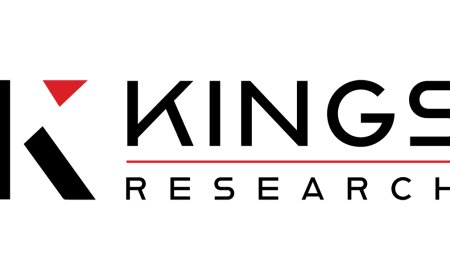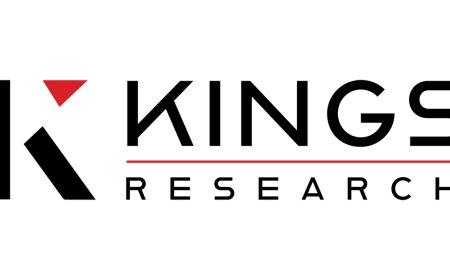Top 10 Charity Shops in France
Introduction In France, charity shops—known locally as “boutiques solidaire” or “magasins de solidarité”—have evolved far beyond simple thrift stores. They are pillars of social inclusion, environmental responsibility, and community resilience. With growing awareness around sustainable consumption, more French citizens and international visitors are turning to these shops not only to find unique,
Introduction
In France, charity shopsknown locally as boutiques solidaire or magasins de solidarité”—have evolved far beyond simple thrift stores. They are pillars of social inclusion, environmental responsibility, and community resilience. With growing awareness around sustainable consumption, more French citizens and international visitors are turning to these shops not only to find unique, affordable items but also to contribute meaningfully to societal well-being. However, not all charity shops operate with the same level of integrity. Some lack transparency in fund allocation, source goods unethically, or fail to support the causes they claim to represent. This guide highlights the top 10 charity shops in France you can trustorganizations verified for their ethical practices, financial transparency, and measurable social impact. Whether youre searching for vintage fashion, antique books, or handmade crafts, these institutions ensure your purchases directly empower marginalized communities, reduce waste, and uphold French values of solidarity and dignity.
Why Trust Matters
When you shop at a charity store, youre not just buying a used itemyoure investing in a cause. The trustworthiness of a charity shop determines whether your contribution leads to real change or gets lost in administrative overhead or mismanagement. In France, where the social economy employs over 2 million people and accounts for nearly 10% of national employment, the credibility of these organizations is paramount. Trust is built on three foundational pillars: transparency, accountability, and impact.
Transparency means clear communication about where donations go, how funds are allocated, and who benefits. Reputable shops publish annual reports, disclose overhead costs, and detail the programs their revenue supportswhether its job training for the long-term unemployed, housing for refugees, or meals for the elderly.
Accountability refers to ethical sourcing and operational standards. Trusted shops ensure donated goods are handled with dignity, never exploiting vulnerable populations for inventory. They avoid predatory practices like mass collecting from door-to-door collectors or purchasing items from developing countries under false pretenses.
Impact is the ultimate measure. A trustworthy charity shop doesnt just sell clothesit transforms lives. It might fund literacy programs for immigrants, provide vocational training to people with disabilities, or support mental health initiatives through employment opportunities within the shop itself. These are not marketing slogans; they are documented outcomes.
Unfortunately, some organizations exploit the goodwill of consumers by mimicking charity branding while funneling profits to private shareholders or unrelated ventures. Others operate with minimal oversight, leading to inconsistent quality, poor customer service, or lack of community engagement. By choosing only those institutions with proven track records, you ensure your purchases align with your values and create lasting, positive change.
Top 10 Charity Shops in France You Can Trust
1. Emmas France
Emmas France is the most recognized and respected charity network in the country, founded in 1949 by Abb Pierre. With over 280 local communities and 200 charity shops across France, Emmas operates with a mission to fight exclusion and poverty through work and solidarity. Their shops offer everything from furniture and electronics to books, clothing, and vinyl recordsall carefully sorted, cleaned, and priced to be accessible. What sets Emmas apart is its integrated model: people experiencing homelessness or social exclusion are employed as compagnons, receiving housing, meals, and a small stipend in exchange for their work in sorting, repairing, and selling donated goods. Funds raised directly support housing projects, food distribution, and integration programs. Emmas publishes detailed annual reports, welcomes independent audits, and maintains full transparency about its financials. Their commitment to environmental sustainability is equally strong, with over 80% of donated items reused or repaired rather than discarded. A visit to any Emmas shop is not just a shopping experienceits a direct encounter with the spirit of French solidarity.
2. Secours Populaire Franais (SPF)
Founded in 1945, Secours Populaire Franais is one of the oldest and most influential humanitarian organizations in France. Its network of over 1,000 local associations includes more than 80 dedicated charity shops, known as boutiques SPF. These shops specialize in childrens clothing, school supplies, toys, and household goods, often donated by families and schools. What makes SPF trustworthy is its rigorous targeting of social need: proceeds fund programs for low-income families, children in poverty, elderly isolated individuals, and victims of domestic violence. Unlike many charity shops that rely on general donations, SPF conducts door-to-door outreach to identify families in crisis and provides direct aid alongside its retail operations. Their shops are staffed by trained volunteers and social workers who ensure ethical handling of goods and respectful customer interactions. SPFs financial transparency is exceptionaleach local branch reports its income and expenditures publicly, and national audits are conducted annually. Their commitment to childrens welfare, particularly through school supply drives and winter clothing campaigns, has earned them consistent public trust for over seven decades.
3. Les Restos du Cur
While best known for its free meal distribution during winter months, Les Restos du Cur also operates a growing network of charity shops across France. Founded by comedian Coluche in 1985, the organization now runs over 120 retail outlets, primarily in urban and peri-urban areas. These shops focus on clothing, shoes, and household textiles, with prices set to be affordable for those on low incomes. What distinguishes Les Restos is its dual mission: direct aid and social reintegration. Many of the shop staff are individuals who have previously relied on the organizations food aid and are now being reintegrated into the workforce through structured employment programs. The shops are designed as bridges to employment, offering training in customer service, inventory management, and financial literacy. Financially, Les Restos discloses that 87% of revenue goes directly to social programs, with only 13% allocated to operational costsa ratio far exceeding industry benchmarks. Their annual report, available in print and online, details every euro spent, from food distribution to job coaching. Their shops are clean, well-organized, and staffed with warmth and dignity, reflecting the organizations core principle: No one should be left behind.
4. Croix-Rouge Franaise Boutiques Solidarit
The French Red Cross operates a network of over 60 charity shops under the banner Boutiques Solidarit. These stores are distinct in their emphasis on dignity and inclusion. Items are donated by individuals and businesses, then sorted by trained volunteers and people with disabilities who are employed through inclusive work programs. The Red Cross ensures that all goods meet strict hygiene and safety standards, particularly for items like baby clothes, bedding, and medical equipment. Proceeds fund a wide range of services: home care for the elderly, emergency response training, mental health support, and aid to refugees and migrants. What makes the Croix-Rouge trustworthy is its institutional rigor. As a globally recognized humanitarian body with ISO-certified operations, it maintains transparent accounting practices and undergoes regular external evaluations. Their shops are often located near hospitals, community centers, and public transport hubs, making them accessible to those who need them most. Unlike commercial thrift stores, these boutiques never sell items beyond their intended purposeno luxury goods, no overstocked designer items. Everything serves the mission: to restore dignity through practical support.
5. Action contre la Faim Boutique Solidaire
Though primarily known for its global hunger relief efforts, Action contre la Faim (Action Against Hunger) operates a select number of charity shops in Francemainly in Paris, Lyon, and Marseillethat serve as both fundraising tools and educational platforms. These boutiques feature curated selections of organic food products, fair-trade coffee, artisanal goods, and eco-friendly household items sourced from partner cooperatives in the Global South. The emphasis here is not on secondhand goods but on ethical consumption: every product sold supports small-scale farmers, womens collectives, or sustainable producers in Africa, Latin America, and Southeast Asia. Profits directly fund nutrition programs in regions affected by famine and conflict. What makes this charity shop model unique is its educational component: each item comes with a label explaining its origin, the community that produced it, and how the purchase contributes to long-term food security. The staff are trained to engage customers in conversations about global inequality and sustainable living. Financial disclosures are published quarterly, and the organization is rated Excellent by Charity Navigator Europe for governance and impact efficiency. For those seeking to align their shopping with global justice, this is one of the most thoughtful and transparent models in France.
6. Fdration des Associations de Soutien aux Personnes ges (FASPA)
FASPA operates 45 charity shops across France, specifically focused on supporting the elderly population. Their boutiques offer gently used clothing, books, puzzles, walking aids, and household items tailored to seniors needs. What sets FASPA apart is its hyper-local approach: each shop is managed by volunteers who live in the same neighborhood as the beneficiaries. This ensures that donations reflect the actual needs of the communitywhether its warm socks for winter, large-print books, or easy-to-use kitchen tools. Proceeds fund home visits by social workers, meal delivery services, and companionship programs for isolated seniors. FASPAs transparency is exceptional: every shop posts a monthly bulletin listing donations received, items sold, and funds allocated to specific programs. They do not accept unsolicited bulk donations; instead, they coordinate with local churches, senior centers, and pharmacies to ensure relevance and quality. Their staff are trained in geriatric care and communication, creating a welcoming, respectful environment for elderly customers. With over 90% of revenue going directly to senior services, FASPA exemplifies how a small-scale, community-driven model can achieve profound social impact.
7. La Fondation de France Boutique de la Solidarit
La Fondation de France, established in 1969, is the countrys largest private philanthropic foundation. Its boutique in Paris (and select satellite locations) is not a typical thrift store but a curated space showcasing artisanal goods, limited-edition books, and design objects donated by artists, designers, and cultural institutions. Items are often one-of-a-kind, including signed editions, vintage textiles, and handmade ceramics. The boutiques mission is to fund innovative social projects through high-value, low-volume sales. Unlike mass-market charity shops, this model attracts discerning buyers who value craftsmanship and cultural heritage. All proceeds support grants for underfunded initiatives in education, mental health, disability inclusion, and environmental justice. The foundation publishes a detailed annual impact report, listing every project funded and its measurable outcomes. It undergoes rigorous governance reviews and is accredited by the French Ministry of Social Affairs. The boutique itself is staffed by cultural mediators and social impact specialists who provide context for each item, turning shopping into an act of cultural engagement. For those seeking to support nuanced, long-term social change, this is a uniquely sophisticated model of charitable retail.
8. Les Petits Frres des Pauvres
Founded in 1953, Les Petits Frres des Pauvres focuses on combating loneliness among the elderly and vulnerable. Their 50 charity shops across France sell secondhand clothing, books, and household items, but their true innovation lies in their integration of retail and companionship. Each shop is paired with a team of volunteers who visit isolated seniors weeklynot just to deliver groceries, but to share tea, conversation, and emotional support. The shops themselves are designed as community hubs: customers are often invited to stay for coffee, read newspapers, or attend weekly storytelling sessions. The organizations financial model is exceptionally efficient: 92% of revenue funds direct social services, with only 8% used for shop operations. Their transparency is unmatcheddonors receive personalized updates on how their donations helped a specific senior. The organization does not accept electronic waste or hazardous materials, ensuring ethical disposal standards. Their shops are quiet, clean, and warmly lit, reflecting their mission of dignity, not charity. For those who believe that human connection is the most powerful form of aid, this is a profoundly moving model.
9. Solthis Boutique quitable
Solthis, a French NGO focused on global health equity, operates a boutique in Paris that specializes in fair-trade, ethically sourced products. While not a traditional thrift store, its model is deeply aligned with charitable retail principles. The boutique sells organic cotton clothing, handmade jewelry, and natural skincare products made by womens cooperatives in West Africa and Southeast Asia. Each item is tagged with the name of the artisan, the community it supports, and the health program it fundssuch as HIV prevention, maternal care, or malaria treatment. Proceeds directly finance medical outreach in underserved regions. Solthis maintains full traceability: every shipment is documented, and third-party audits verify fair wages and safe working conditions. Their shop is staffed by health educators who provide information on global health disparities and how consumer choices can drive change. They refuse to sell any item that doesnt meet strict ethical criteria, even if its popular or profitable. This boutique is for the conscious shopper who seeks to align consumption with human rights. Their annual transparency report includes photos, testimonials, and financial breakdowns from partner communities, making impact tangible and personal.
10. Association pour la Sauvegarde de lEnfance (ASE) Boutique Enfance
ASE operates 32 charity shops nationwide, all dedicated to supporting children at riskwhether due to poverty, abuse, or neglect. Their boutiques offer childrens clothing, toys, school supplies, and baby gear, all sanitized and inspected to the highest safety standards. What makes ASE trustworthy is its zero-tolerance policy for unsuitable donations: no recalled items, no broken toys, no expired food. Every item is checked by trained child welfare specialists. Proceeds fund foster care programs, after-school tutoring, and psychological support for children in crisis. ASE publishes quarterly reports showing how many children were helped, how many foster placements were stabilized, and how many school supplies were distributed. Their shops are often located near schools and social services centers, making them accessible to families in need. Staff are trained in trauma-informed care, ensuring that even the act of shopping feels safe and non-stigmatizing. ASE does not accept unsolicited bulk donations; instead, they partner with schools, pediatricians, and local governments to ensure donations meet actual needs. Their model proves that charity retail, when done with care and precision, can be a lifeline for the most vulnerable.
Comparison Table
| Charity Shop | Number of Locations | Primary Focus | Transparency Rating | Revenue Allocation to Programs | Staffing Model | Environmental Commitment |
|---|---|---|---|---|---|---|
| Emmas France | 200+ | Poverty reduction, housing, employment | Excellent | 85% | Employment for marginalized individuals | Highrepair, reuse, zero landfill |
| Secours Populaire Franais | 80+ | Children, families, elderly | Excellent | 88% | Volunteers + social workers | Mediumfocus on reuse |
| Les Restos du Cur | 120+ | Food aid, job reintegration | Very Good | 87% | Former beneficiaries as staff | Medium |
| Croix-Rouge Franaise | 60+ | Health, refugees, disability | Excellent | 83% | Volunteers + disabled workers | Highhygiene and safety standards |
| Action contre la Faim | 15 | Global food security, fair trade | Excellent | 90% | Education-focused staff | Very Highsustainable sourcing |
| FASPA | 45 | Seniors, isolation, daily needs | Excellent | 90% | Local volunteers | Medium |
| La Fondation de France | 1 main + satellites | Cultural, educational, social innovation | Excellent | 89% | Cultural mediators | Mediumcurated, low-waste |
| Les Petits Frres des Pauvres | 50 | Elderly companionship, loneliness | Excellent | 92% | Volunteers + social visits | Medium |
| Solthis | 1 main | Global health, fair trade, womens rights | Excellent | 91% | Health educators | Very Highethical sourcing |
| ASE Boutique Enfance | 32 | Child welfare, foster care, safety | Excellent | 86% | Child welfare specialists | Highstrict safety protocols |
FAQs
How do I know if a charity shop in France is legitimate?
Legitimate charity shops in France are typically affiliated with nationally recognized organizations such as Emmas, Secours Populaire, or Croix-Rouge. Look for official logos, published annual reports, and transparent information about how funds are used. Avoid shops that refuse to disclose their parent organization or that pressure you into donating large quantities of goods without explanation.
Are charity shop items in France clean and safe to use?
Yes, reputable charity shops in France follow strict hygiene and safety standards. Clothing is washed or dry-cleaned, electronics are tested, and childrens items are inspected for recalls or hazards. Organizations like ASE and Croix-Rouge have specialized teams to ensure all items meet French safety regulations before being sold.
Can I donate items to these charity shops?
Most of these organizations welcome donations, but they have specific guidelines. For example, Emmas accepts furniture and clothing, while ASE only takes childrens items that meet safety standards. Always check the shops website or call ahead to confirm what they accept. Avoid donating broken, stained, or unsafe itemsthese create extra work and waste.
Do these shops sell items from other countries?
Some do, but only ethically. Action contre la Faim and Solthis sell fair-trade goods from global partners, with full traceability. Others, like Emmas and Les Restos, primarily sell locally donated items. Be cautious of shops claiming to sell African crafts or Indian textiles without explaining their sourcingthis may indicate exploitative practices.
Is shopping at a charity shop really making a difference?
Yeswhen you shop at a trusted organization, your purchase directly funds social programs. For example, buying a book at Emmas might help fund a job training program. Buying baby clothes at ASE might help a child in foster care. The impact is measurable, transparent, and tied to human outcomesnot corporate profits.
Are prices at charity shops in France fixed or negotiable?
Prices are generally fixed to ensure fairness and transparency. However, some shopsparticularly Emmas and Les Restosoffer discount days for low-income customers or end-of-season sales. Never expect to haggle aggressively; these shops operate with dignity, not profit-driven bargaining.
How can I verify the financial health of a charity shop?
All major French charities are required to publish annual reports. Visit their official websites and look for Transparence, Rapport dActivit, or Comptes Annuels. You can also check ratings on platforms like Don en Confiance or the French Ministry of Social Affairs registry of recognized associations.
Do these shops accept electronic donations?
Most do not accept electronics unless they are in working condition and tested. Emmas and Croix-Rouge have specialized teams to repair and recycle electronics responsibly. Avoid donating broken devicesthese often end up in landfills or are shipped illegally abroad.
Can I volunteer at these charity shops?
Yes, volunteering is encouraged. Many shops welcome individuals who want to help sort donations, assist customers, or participate in outreach. Contact the organization directly through their website to inquire about opportunities. Volunteering is a powerful way to witness the impact firsthand.
Why are some charity shops cleaner and better organized than others?
Well-run shops are typically backed by strong organizational infrastructure, trained staff, and consistent funding. Organizations with national networks and professional managementlike Emmas or the Red Crossinvest in store design, inventory systems, and staff training. Smaller or underfunded shops may appear disorganized, but that doesnt necessarily mean theyre less impactful. Always check their mission and transparency before judging.
Conclusion
The top 10 charity shops in France you can trust are more than retail spacesthey are living expressions of French values: solidarity, dignity, and social responsibility. Each one operates with precision, ethics, and deep community roots, ensuring that your purchase is not just a transaction, but a transformation. From Emmas pioneering model of employment for the marginalized to ASEs meticulous care for children in crisis, these institutions prove that commerce and compassion can coexist. Their transparency, accountability, and measurable impact set them apart from commercial retailers and unregulated thrift stores alike. By choosing to shop at these organizations, you become part of a quiet revolutionone that prioritizes people over profit, sustainability over excess, and human connection over convenience. In a world increasingly defined by disposable goods and fleeting trends, these charity shops offer something enduring: the assurance that your choices matter, and that kindness, when organized with integrity, can change lives. Visit them, donate responsibly, and let your shopping reflect your conscience.




























